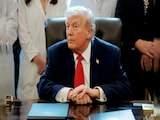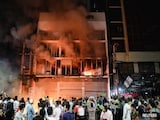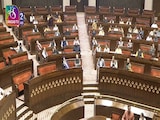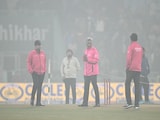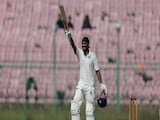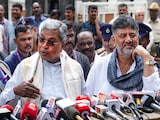The Special Investigation Team (SIT) team probing 2002 Gujarat riots on Wednesday told the Supreme Court that it was "not shielding anybody" and conducted the investigation "very thoroughly and efficiently" on the complaint of Zakia Jafri, who has alleged larger conspiracy in the incident.
The Special Investigation Team said a "very extensive inquiry" was conducted in which it examined 275 persons and there was no material to conclude that there was any larger conspiracy as alleged by Zakia Jafri.
Zakia Jafri, the wife of Congress leader Ehsan Jafri who was killed at Gulberg Society in Ahmedabad on February 28, 2002, during the violence, has challenged the probe agency's clean chit to 64 people including Narendra Modi, the then Gujarat chief minister during the riots.
Senior advocate Mukul Rohatgi, appearing for the probe agency, told a bench headed by Justice AM Khanwilkar that it is "very unfair" to say that probe team did not do its job.
Regarding the allegation that appropriate steps were not taken by the state authorities during that period to prevent riots, Mr Rohatgi said the violence started on February 28, and on the same day the then chief minister had called a meeting and a decision was taken to call the Army.
"We (SIT) were not shielding anybody," Mr Rohatgi told the bench, also comprising Justices Dinesh Maheshwari and C T Ravikumar.
"Really speaking, there is nothing in this case except to go on filing thousands of pages and trying to tell a court that we (SIT) did not do our job," the former Attorney General said.
He said there were allegations about the presence of two ministers in the control room during the violence and the SIT examined every relevant person and found that one had visited there while the other had not.
Mr Rohatgi said the minister who had visited there was sitting in a separate room.
"The SIT found nothing wrong in the minister going there for half-an-hour," he said, adding, "Presence of minister will help the police. It will help the morale of the police that the minister is not hiding in his house."
At the outset, the senior advocate told the bench that he would endeavor to show that SIT had "conducted its job very thoroughly and efficiently and examined all relevant people, all relevant materials".
Referring to the sequence of events starting from the 2002 Godhra train incident in which the S-6 coach of Sabarmati Express was burnt killing 59 people, Mr Rohatgi said violence had started a day after on February 28.
"On February 28, the chief minister called a meeting and a decision was taken to call the Army," he said, adding that a fax message was also sent to the Union Home Ministry and there was no delay in this process.
Regarding Zakia Jafri's contention that special probe team did not probe several aspects, Rohatgi said the team was entrusted a job by the Supreme Court and it did a "very extensive inquiry" and examined 275 persons.
"It was only to ensure that nobody can point a finger at the SIT that they were partisan because allegations were flying thick and fact from 2002-2003," he said.
"It is very unfair to say that the SIT did not do its job. I will show what they did. They did their job. You may or may not agree with it that is a different thing. But they should not be accused of not doing their job," he said during the day-long arguments which would continue on Thursday.
The senior advocate said a lot was argued about the alleged parading of bodies of train incident victims, but the argument has no substance at all.
Regarding the allegation that SIT did not consider the tapes of a sting operation, Mr Rohatgi said the statements made in them inspired no confidence and there was no material to support them.
He said there were nine cases related to the riots in which charge sheets and several supplementary charge sheets were filed by state police.
The senior advocate said after the SIT took over the probe, several supplementary charge sheets were filed and many accused were added in these cases.
Dealing with Zakia Jafri's argument that SIT did not examine the relevant call detail records (CDRs) of that period, Mr Rohatgi said by the time SIT came for investigation, around eight years have gone by and companies do not keep CDRs for so long.
"We (SIT) found no evidence either of parading, which could have added fuel to the fire. We found no evidence that police or state was complicit in getting the post-mortem wrongly done," he said.
Regarding the allegation that some public servants were transferred at that time, he said it is for the government to decide on transfer.


